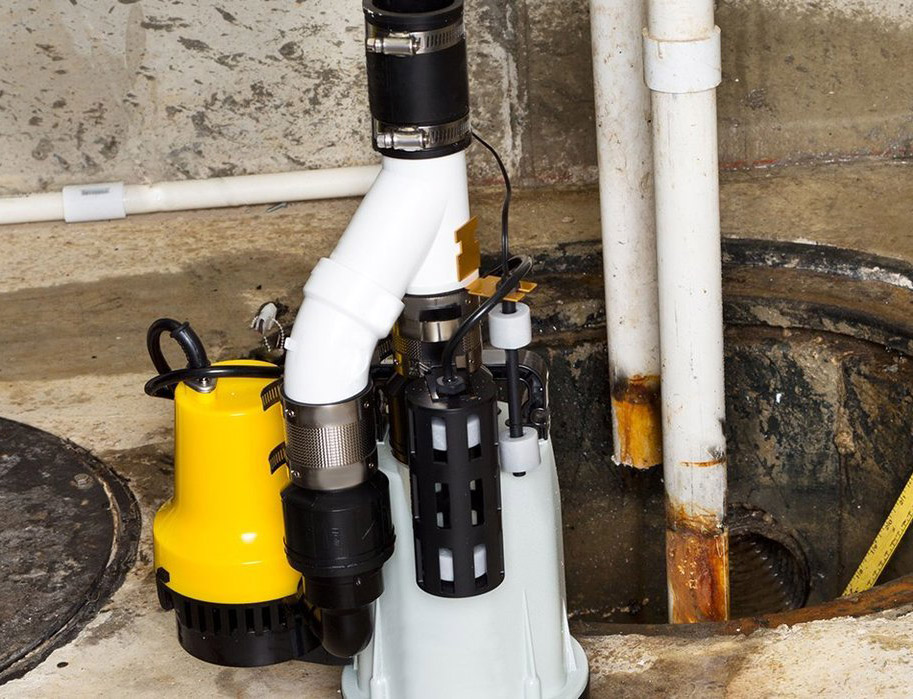Understanding the Secret Components of Effective Water Filtering Solutions

Value of Water Purification Solution
Water purification systems play an essential duty in making sure accessibility to clean and safe drinking water by properly getting rid of pollutants and contaminants. These systems are important in addressing the expanding concerns over water high quality and the possible wellness risks linked with taking in polluted water. By using various purification devices such as reverse osmosis, triggered carbon, and UV sanitation, water filtration systems can effectively eliminate hazardous materials like germs, viruses, heavy steels, and chemicals from the water system.
In addition, water filtering systems assist to boost the taste and smell of water by eliminating chlorine, debris, and other pollutants that can affect its quality. Pump repairs & installation. This enhancement in water top quality not only makes it much more palatable but also encourages people to drink a sufficient amount of water daily, promoting much better hydration and total health and wellness
Kinds of Purification Parts

Physical filters are designed to literally strain out pollutants from the water. These filters can be made from products like ceramic, carbon, or also sand, and they function by capturing fragments larger than the filter's pores as water goes through.
Chemical filters utilize numerous chemical procedures to get rid of impurities from the water. Examples include activated carbon filters, which adsorb impurities, and reverse osmosis membrane layers, which use pressure to different contaminants from the water.
Organic filters make use of living organisms like algae or microorganisms to damage down raw material and pollutants in the water. These filters are commonly made use of in wastewater treatment plants or natural water purification systems.
Recognizing the different sorts of filtration parts is crucial for picking one of the most appropriate water purification system for specific purification demands.
Function of Sediment Filters
Debris filters play a vital duty in water purification systems by properly catching solid fragments put on hold in the water. These filters are typically the very first line of protection in a filtration system, removing bigger bits such as sand, silt, dirt, and corrosion before the water moves via finer filtering stages. By capturing these sediments, the filters stop them from reaching downstream parts, thus prolonging the life expectancy and effectiveness of the entire system.
Neglecting this maintenance can lead to obstructing, decreased water flow, and jeopardized purification effectiveness. Overall, debris filters are my latest blog post essential components that contribute dramatically to the effectiveness of water filtration systems.
Function of Triggered Carbon Filters
Playing a critical function in water filtering systems, triggered carbon filters are critical in removing pollutants and contaminants from the water supply. As water passes through the filter, the turned on carbon brings in and holds onto the impurities, making sure that the water that comes out on the various other side is cleaner and much safer for usage.
Activated carbon filters are very effective at enhancing the taste and smell of water by minimizing chemicals that can influence its top quality. Due to their convenience and integrity, triggered carbon filters are a vital element in making certain that water is cleansed to the greatest standards prior to reaching consumers.
Comprehending Reverse Osmosis Systems
Reverse osmosis systems are sophisticated water purification systems that employ an innovative procedure to remove pollutants and pollutants from drinking water. These systems work by using pressure to the water, compeling it via a semi-permeable membrane. This membrane serves as a barrier, permitting only distilled water molecules to i loved this travel through, while obstructing larger molecules such as minerals, chemicals, and various other pollutants. As an outcome, the water that comes out on the other side is significantly cleaner and more secure for consumption.
One key advantage of reverse osmosis systems is their ability to eliminate a wide variety of impurities, including heavy metals, dissolved microorganisms, viruses, and solids. This makes them very reliable in boosting the general top quality and safety and security of alcohol consumption water. In addition, reverse osmosis systems are fairly low-maintenance and can be installed under the sink or in a central filtering system, providing convenient accessibility to clean water throughout the household. Generally, understanding how reverse osmosis systems function can help individuals make informed choices concerning their water filtration requirements.
Conclusion
In conclusion, effective water filtering systems are vital for making sure risk-free and clean alcohol consumption water. The essential parts of these systems consist of debris filters, triggered carbon filters, and turn around osmosis systems. By recognizing the feature and duty of each component, people can make informed choices when picking a water purification system. It is very important to focus on the top quality of water in order to advertise overall health and wellness.
Water filtering systems play a critical duty in making certain access to clean and safe drinking water by effectively removing impurities and impurities. By making use of various purification devices such as reverse osmosis, triggered carbon, and UV sanitation, water purification systems can successfully get rid of hazardous materials like germs, infections, heavy metals, and chemicals from the water supply.
Sediment filters play a crucial function in water filtering systems by properly dig this capturing solid particles put on hold in the water (Water Treatment).Playing an essential duty in water purification systems, activated carbon filters are critical in getting rid of impurities and contaminants from the water supply.Reverse osmosis systems are innovative water purification systems that employ a sophisticated process to eliminate contaminants and impurities from drinking water